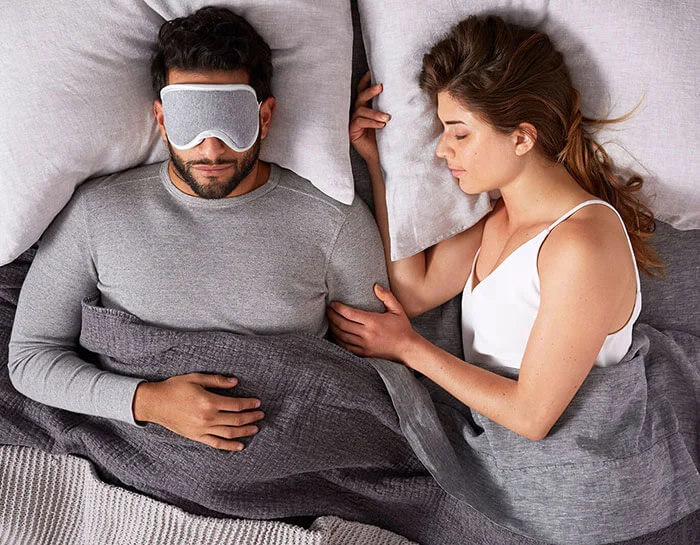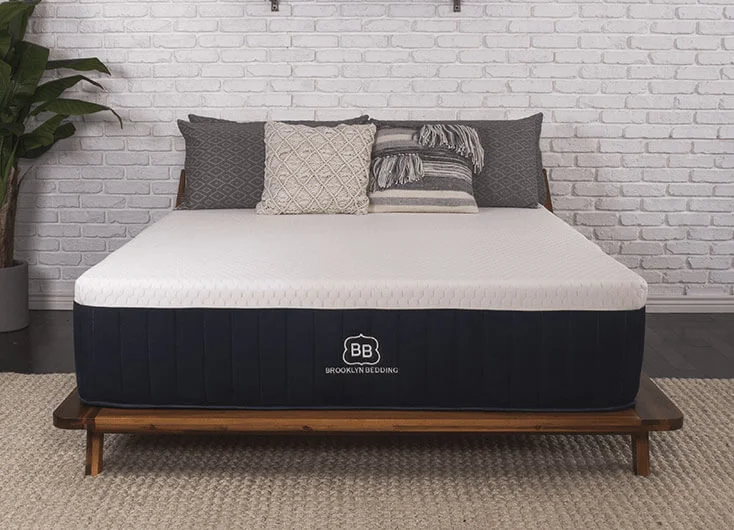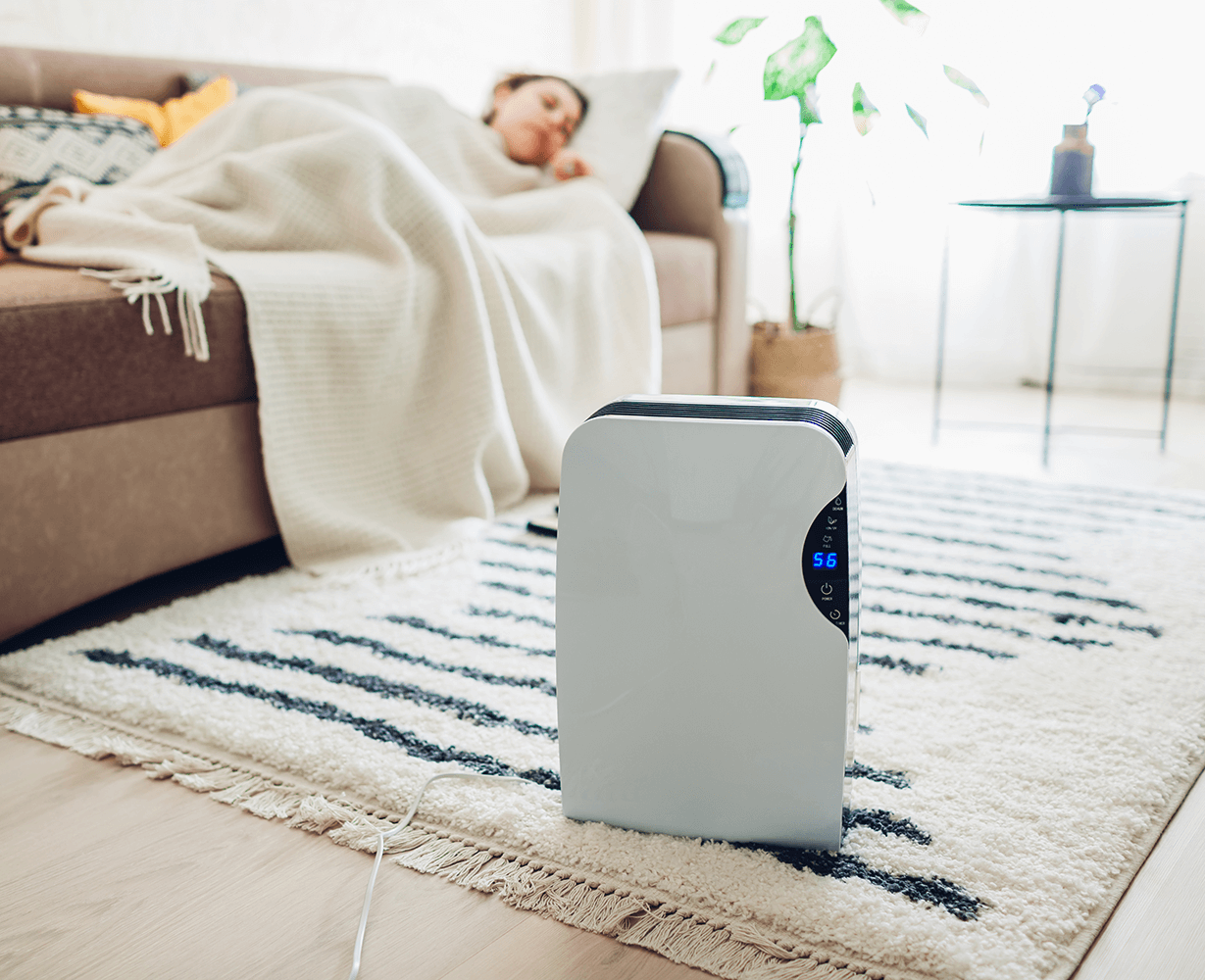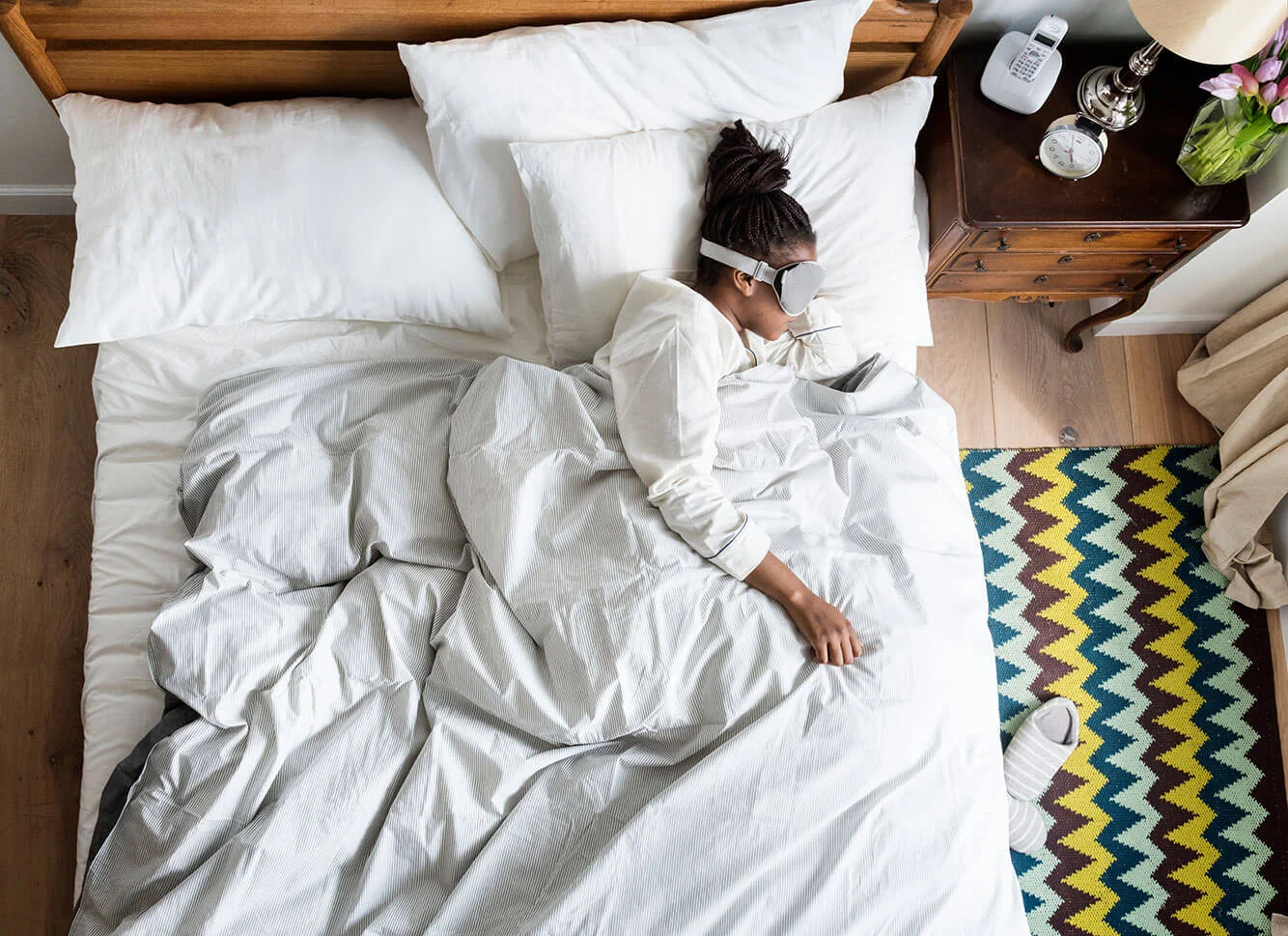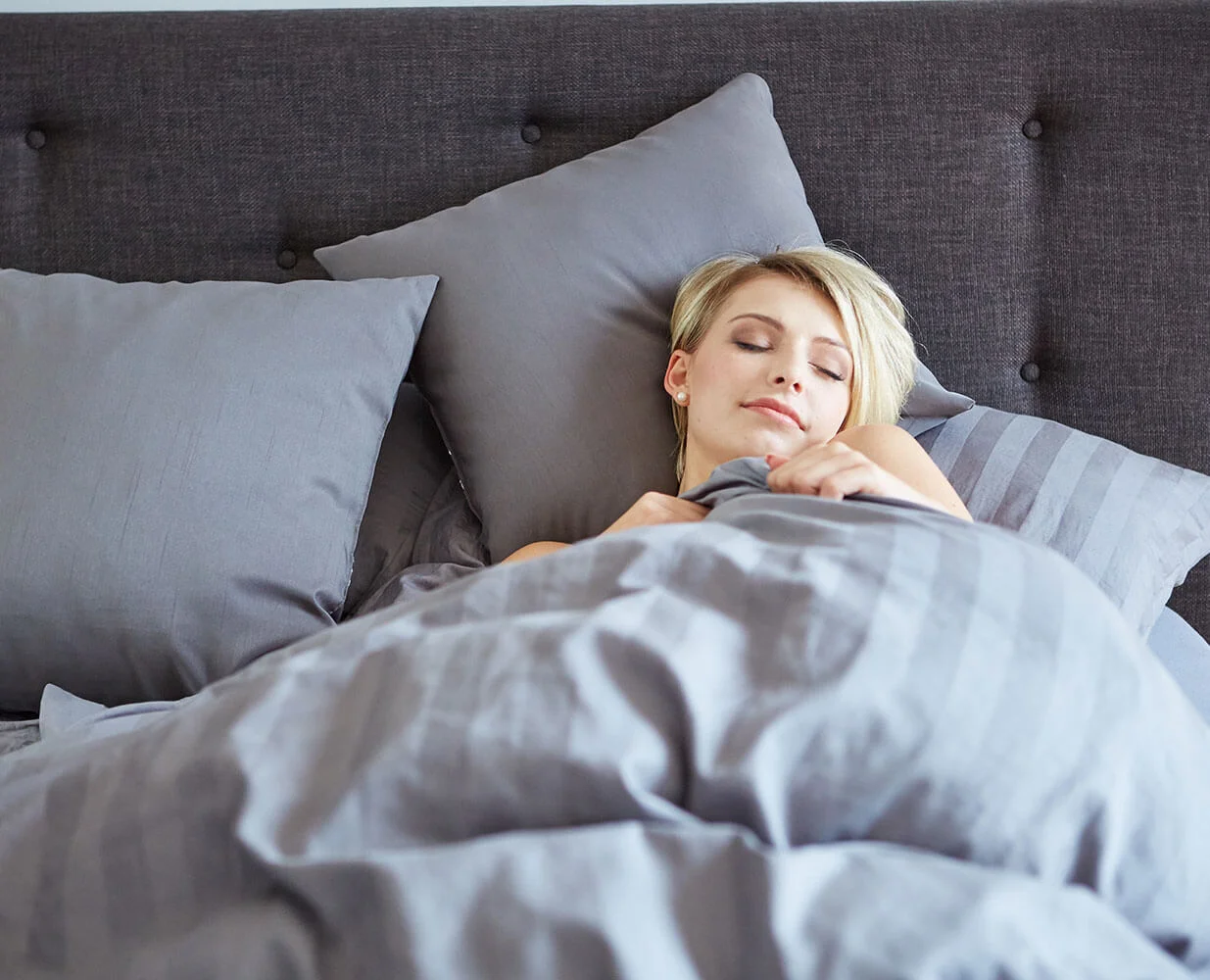A Closer Look at Melatonin as a Sleep Aid
When you’re having trouble sleeping, you’ll try anything to get a bit of rest and relaxation. You may change your bedtime routine, adjust the atmosphere of your bedroom or even consult a doctor about remedies for your insomnia.
There are many reasons you may be losing sleep. Stress is a huge concern for those who aren’t getting ample rest. Of course, caffeine is another and even the foods you eat can impact your rest. Sometimes your lack of rest is caused by chemical changes in your body.
When you don’t get enough sleep, it impacts you in many ways. Your performance at work will suffer. You may be more likely to be cranky or irritable, and your safety is certainly put at risk. If you’re looking for a solution to your sleeping difficulties, but want to try something natural, consider talking to your doctor about melatonin.
In this guide, we’ll take a look at melatonin, the natural supplement marketed to people who have difficulty getting rest. Of course, before you consider taking a sleep aid like melatonin it’s critical that you schedule a consultation with your doctor. Here’s everything you need to know about melatonin before your appointment.
What is melatonin?
Melatonin A Sleep Aid
Melatonin is a hormone that your body produces naturally. This hormone is created by your pineal gland, which is tucked in between the left and the right hemispheres of your brain.
There have been some interesting theories throughout history about the role this little gland plays. For instance, Descartes believed it was the location of humans’ common sense, and even that the pineal gland was the location of the soul!
Other physicians, philosophers and spiritualists have thought the pineal gland to be the third eye, the organ of spiritual vision and so on. Over the years, however, we’ve come to learn that while we know these things to be untrue, there’s much more to learn about the pineal gland. We don’t know the extent of the functions of the gland except that it’s directly related to how your body regulates its sleep patterns.
So what does it do? Melatonin is like your body’s natural alarm clock. You’ve likely heard the term circadian rhythm. Well, one of melatonin’s many roles is to help direct your body’s natural sleep-wake cycle, the circadian rhythm. Basically, this hormone tells your body when to sleep and when to wake.
The production of melatonin by your body is directed by a structure called the suprachiasmatic nucleus, or SCN for short. This structure gets its signals from your eyes – simply put, by registering daylight or other light. When the SCN registers daylight, it will begin to suppress melatonin production. In the dark, it will tell the pineal gland to produce more.
What causes improper melatonin production?
If you’re struggling to get to sleep, it could be that your body isn’t properly producing melatonin. This doesn’t mean there’s anything wrong with you! Your pineal gland’s production of the hormone may be related to a plethora of circumstances, including:
Jet lag and travel
Your exposure to light and darkness
Your exposure to the blue lights of electronics
Whether you work shift work
Your age
As you can see, there are plenty of instances when your body may not produce the amount of melatonin needed to help you sleep on a regular basis. It should be noted that there are certainly many other causes for insomnia or other sleep difficulties.
Insomnia causes may include:
Pre-existing health conditions
Caffeine consumption
Alcohol consumption
Your diet
Your stress levels
Your medications
Nicotine use
Poor general sleep hygiene
Because there are so many factors that may affect your sleep cycles, it’s important that you speak with a doctor before beginning any supplement routine, including melatonin.
How does melatonin work?
What is melatonin?
We’ve already talked about what melatonin is, as well as how and when it’s produced by your body. When you and your doctor have determined that your sleeping difficulties are, in fact, caused by an improper melatonin balance, it’s time to begin to discuss how a supplement can help you.
Melatonin is available over the counter. You can get it at your local drug store, grocery store or mass retailer. You can also buy the supplement online. If you do choose to purchase melatonin online, be sure to check reviews as well as company information, making sure the merchant is reputable. It’s usually best if your melatonin is USP verified.
You’ll have plenty of options when you choose your melatonin supplement. There are quite a few forms of the supplement, and you can pick from:
Pills
Capsules
Dissolvable options
Chewable options
Gummies
Liquids
Sprays
The format you choose is fairly unimportant, so long as the “filler” ingredients are safe. Again, check with your doctor and look for the USP verified label. Then, simply choose the supplement that best suits your needs, whether you’d rather chew a gummy or drop a few drops in your chamomile tea before bed.
Melatonin: Uses and Effectiveness
How does melatonin work?
Melatonin could be considered a “misunderstood” supplement. Many people think melatonin to be a supplement that will make you sleepy, as you’d expect something like chamomile or valerian root to do. That, however, is not the case.
Melatonin is not a sleeping pill. Taking melatonin won’t necessarily make you drowsy, because that’s simply not what it’s meant to do. Unlike herbal supplements and over the counter remedies like diphenhydramine. Melatonin is simply meant to regulate your body’s natural hormones.
Earlier, we explored how your pineal gland regulates the hormone melatonin and how the production of the hormone was related to light and darkness. Imagine, for a moment, a world without artificial light.
A human with healthy melatonin production would experience an increase of the hormone in the hours prior to “bedtime” at night. That production would peak in the middle of the night, then gradually taper off as morning approaches.
People who experience difficulty in producing melatonin may benefit from a supplement. Taking an over the counter melatonin supplement under the guidance of a physician may help to get your body’s internal clock regulated back to a healthy rhythm. However, the melatonin you find in stores will not work exactly the same way as your natural melatonin.
Over the counter melatonin is released in bursts, then leaves your body quickly. With that said, if you can work with your doctor to devise a natural way to regulate your body’s natural rhythms, that’s always best! If you and your doctor decide that melatonin is a good option for you, it’s recommended that you take your supplement a few hours before bedtime. This will help signal your body that it’s time for rest.
Is Melatonin Safe?
Is Melatonin Safe?
Melatonin isn’t sold as a prescription in the United States, so it’s not as closely regulated by government agencies as diphenhydramine and other sleep aids.
In studies, melatonin has been taken safely for as many as two years without serious side effects. If you’re pregnant or breastfeeding, always check with your midwife or doctor before you begin to take melatonin.
While the supplement isn’t readily regulated by the FDA, it’s essential for your safety that you look for melatonin supplements that are in compliance with GMP, or good manufacturing practices.
Melatonin that’s produced in a GMP facility will be properly labeled, produced on approved machines and will adhere to rigorous quality standards. You’ll find evidence of GMP manufacturing right on your melatonin label.
As with any drug or supplement, melatonin isn’t without side effects. These won’t affect everyone, but some people may experience:
Headaches
Dizziness
Morning grogginess
Nausea
Symptoms of depression
Again, these symptoms won’t impact everyone, but it’s best to be mindful of the possibilities. Also note that melatonin may interfere or interact with some medications, such as contraceptives, so be certain that you speak with your doctor before you add melatonin to your evening routine.
Is Melatonin Safe for Children?
Is Melatonin Safe for Children?
Since melatonin is a naturally occurring hormone, melatonin is generally considered safe for children. However, be sure you’re not giving a child an adult dose of melatonin! For adults, 3 mg of melatonin has been shown to be effective. For children, your doctor will likely recommend a lower dose, around a half to 1 mg.
As mentioned, the long term effects of melatonin haven’t been studied in depth. Keep this in mind as you try to remedy your child’s sleep difficulties. Before you give your child medication, talk to your pediatrician – she will likely recommend that you first try other methods of improving sleep hygiene, including:
Limiting screen time
Creating a structured bedtime routine
Adjusting the bedroom setting to be more conducive to sleep
Enforcing a set bedtime and wake up time
Addressing your child’s stresses and/or fears
As you know, the best way for kids to fall asleep is naturally. If possible, work with your doctor and your child to enable healthy, natural sleep before you begin supplementing melatonin into his routine.
Other Health Benefits of Melatonin
Health Benefits of Melatonin
You now know that melatonin can help tell your body that it’s time to sleep. Regulating your natural sleep-wake cycle is one of the benefits this supplement can offer. Did you know that melatonin carries additional benefits?
Melatonin has antioxidant properties, which may help to support your eye health and lower your risk of diseases associated with your eyes. These antioxidant properties may also help to prevent and treat heartburn and ulcers in the stomach.
You may know that seasonal depression is closely linked to changes in light and changes in sleep patterns. For that reason, melatonin may help alleviate seasonal depression in adults and children.
Taking a melatonin supplement will impact the levels of human growth hormone in your body. Particularly in young men, this supplement has been shown to assist in increasing muscle mass and strength. Women, if you suffer from endometriosis taking a melatonin supplement may help alleviate some of your pain.
Note, of course, that melatonin may reduce the efficacy of some of your other medications such as contraceptives. Controlled release melatonin has been shown to help regulate blood pressure in those whose blood pressure is high. Finally, melatonin is effective in helping children with ADD and ADHD to rest, when taken before normal sleep times.
Melatonin A Effective Solution For People Who Suffer From Sleep Disorders
There are dozens, even hundreds, of sleep aids on the market today. You may be familiar with prescription aids and over the counter aids, and you’ve likely heard of melatonin. Melatonin isn’t a sleeping pill that’s meant to make you drowsy. Instead, the supplement works to help your body distinguish between time for wakefulness and time for rest. For that reason, melatonin may be an effective solution for people who suffer insomnia or other sleep disorders.
Before you try any supplement, including melatonin, be sure to talk with your doctor. Together, you can discuss your lifestyle, your health and your current medications, then determine whether melatonin for sleep is a good, safe option for you.
Shana Thompson is a full time professional writer and editor. Shana has worked extensively in the fields of content marketing, on-page and off-page SEO (guest posts, backlink acquisition), and creative writing. As an experienced pro content writer, Shana has worked on several magazines, publishing companies and marketing agencies. Many recent projects have included everything from nutrition and health services, where a lot of research and citations were needed, to writing about health, sustainable, eco-friendly products.
Follow Shana at Shana Thompson


